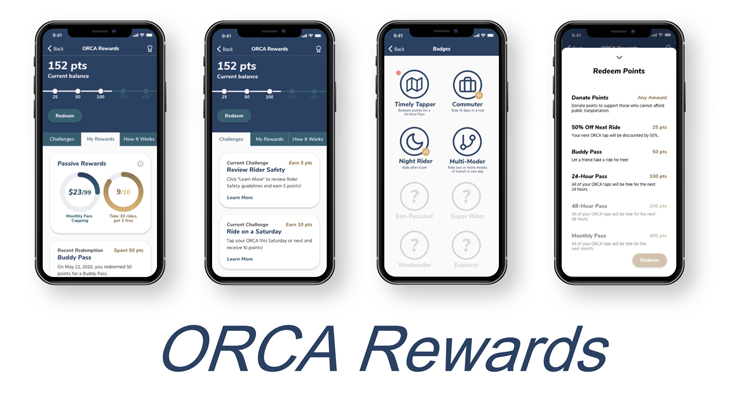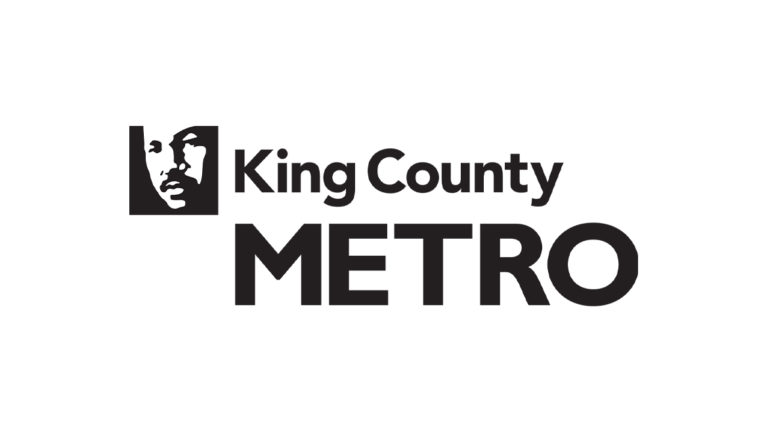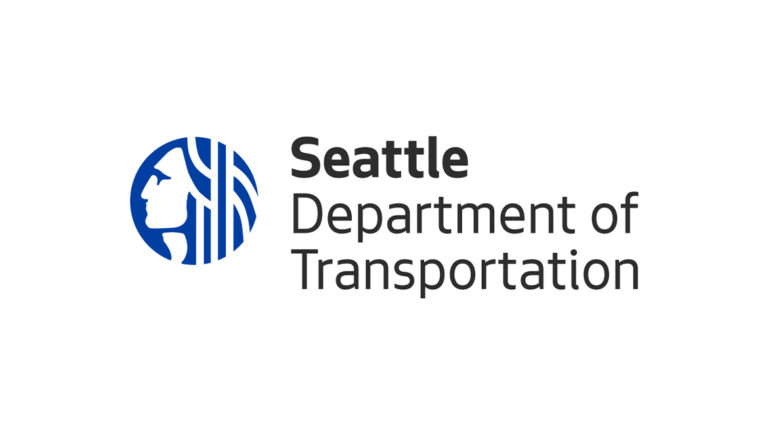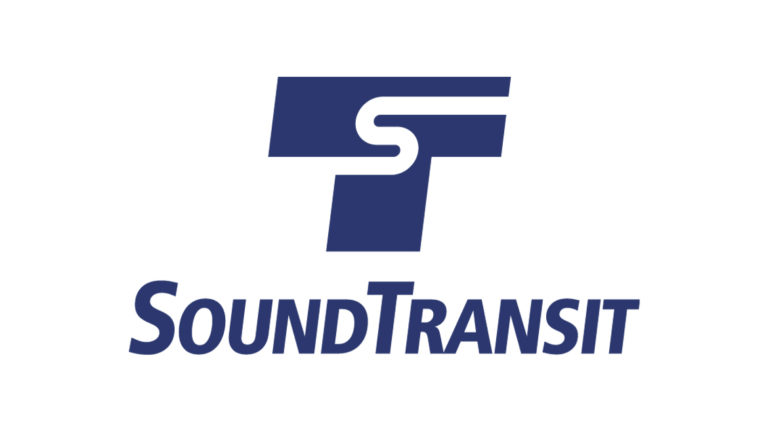
Issue
Many commuters are motivated to ride transit because they receive a transportation benefit from their employers. For occasional riders and small business workers who do not receive a subsidized transit farecard, is there a way to create a loyalty program that welcomes them to a community of riders and encourages their continued choice for transit?
Spark
Our goal of this project is to design an equitable and accessible loyalty program that leverages incentives to reduce barriers and increase ridership among unsubsidized transit riders. This study was motivated by a need to understand the experiences of riders who do not receive a subsidized transit benefit from their employers.
Overview
The research team designed and conducted an online survey and a remote interview study. The primary goals of the survey were to build a foundation for our understanding of unsubsidized riders and to recruit participants for the interview portion of the study. The survey was posted on local Seattle Facebook groups, Nextdoor, and local Reddit threads, where we received 203 responses. From our pool of respondents, we recruited six participants for 30 – 60 minute, semi-structured, remote interviews. Respondents were eligible for interviews if they were fully unsubsidized or partially subsidized transit riders. These findings helped identify what is important to riders and informed what rewards should be offered to Seattle’s public transit riders. The findings also called out barriers that prevent riders from using public transit in certain situations and how a rewards program could potentially compensate for those barriers.
Innovation
The final deliverable was a detailed Rider Rewards Program Proposal, which includes a summary of background research, the proposed rewards program structure, recommendations for rewards and incentives, recommendations for the Minimum Viable Product (MVP), and high-fidelity wireframes.
Rider Rewards Program Overview
In the proposed Rider Rewards Program, riders earn a set amount of points every time they ride. Points can be redeemed in exchange for Active Rewards, which help riders save money on transit. Riders also earn Passive Rewards, like fare capping and free rides. Passive Rewards do not require redemption as they are automatically applied. The inclusion of Challenges allows transit to gamify new ridership behaviors and gives riders the opportunity to earn bonus points. Additionally, Badges provide a fun and engaging way for riders to track and share their ridership habits and achievements.
Rewards Account Structure
The rewards program would be available for any person with a Transit Account and ORCA credentials. Each rider with a Transit Account will be able to earn points to redeem rewards that are applied to their ORCA card. Riders without an ORCA account are not eligible to participate in this Rider Rewards Program. The Rider Rewards Program offers an incentive for riders without an ORCA card to get an ORCA.
Multiple Transit Accounts Under One Customer Account
In cases where one customer manages multiple Transit Accounts, the team recommends that points are still rewarded at the level of the Transit Account. If technically feasible, it is also recommended that Transit Accounts under the same Customer Account have the ability to share points with one another. This gives the rider the option to accumulate the points of all the Transit Accounts to redeem a reward for one ORCA card.
Materials
- View the research findings
- View the final presentation slides
- Explore the high-fidelity prototype
- Read the final report
Impact
The kind of Rider Rewards Program the team designed for would most likely be implemented during Phase 2 of the Next Generation ORCA rollout in 2023 or later. For this reason, the team provided a detailed program proposal that clearly justifies recommendations with research findings. The detailed Rider Rewards Program Proposal and the high-fidelity wireframes ensure that when this project gets picked up again in a few years, the project leaders will quickly understand the context of the design recommendations and research.
Team
This project was sponsored by the University of Washington Mobility Innovation Center in partnership with King County Metro, Sound Transit and the Seattle Department of Transportation. The research team drew four undergraduate students from the University of Washington in the Department of Human Centered Design and Engineering.
Academic Department
Faculty Leadership
Contributors
- Emily Rosenfield
- Griffen Schwiesow
- Karishma Patel
- Rachel Wallace



